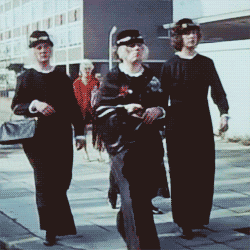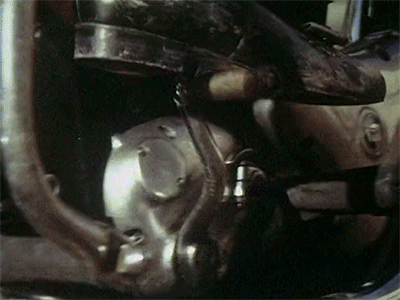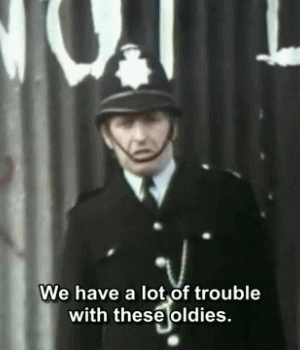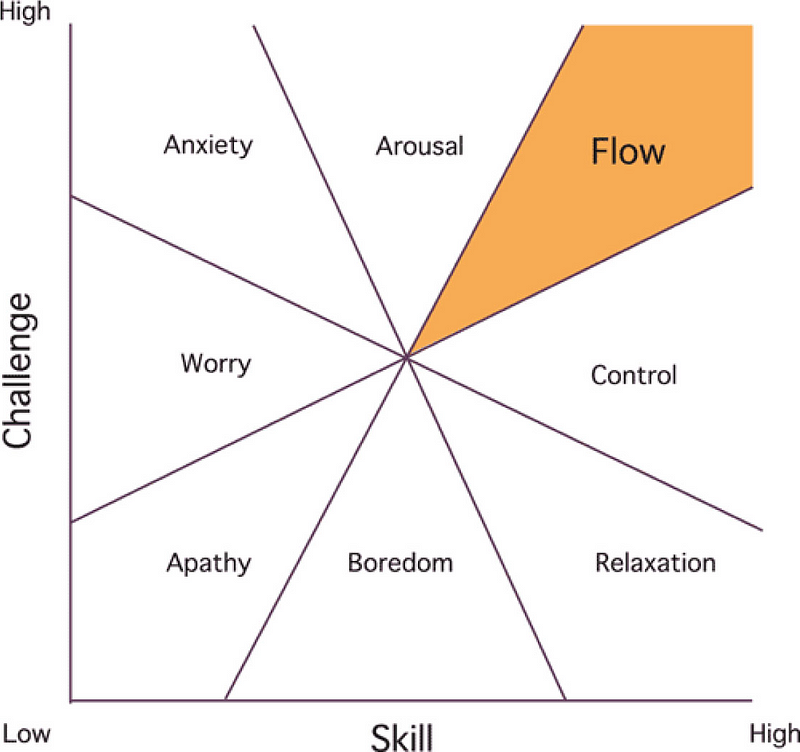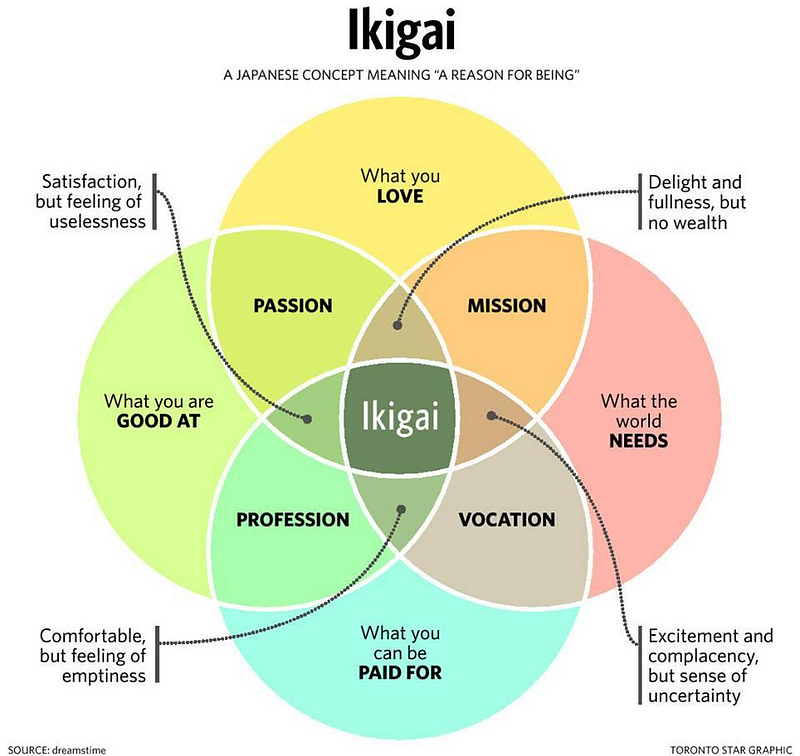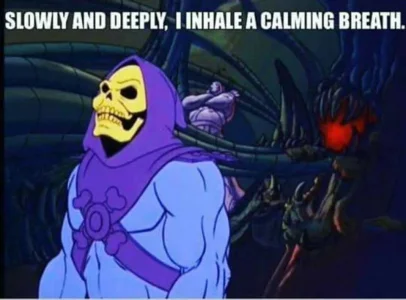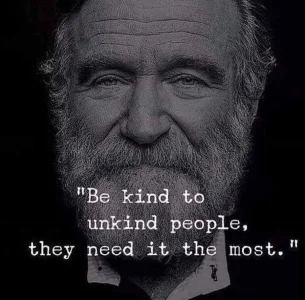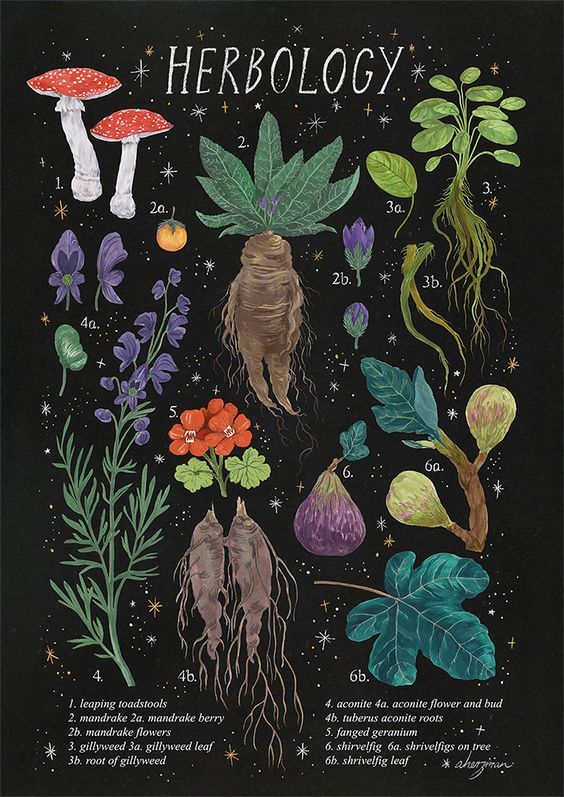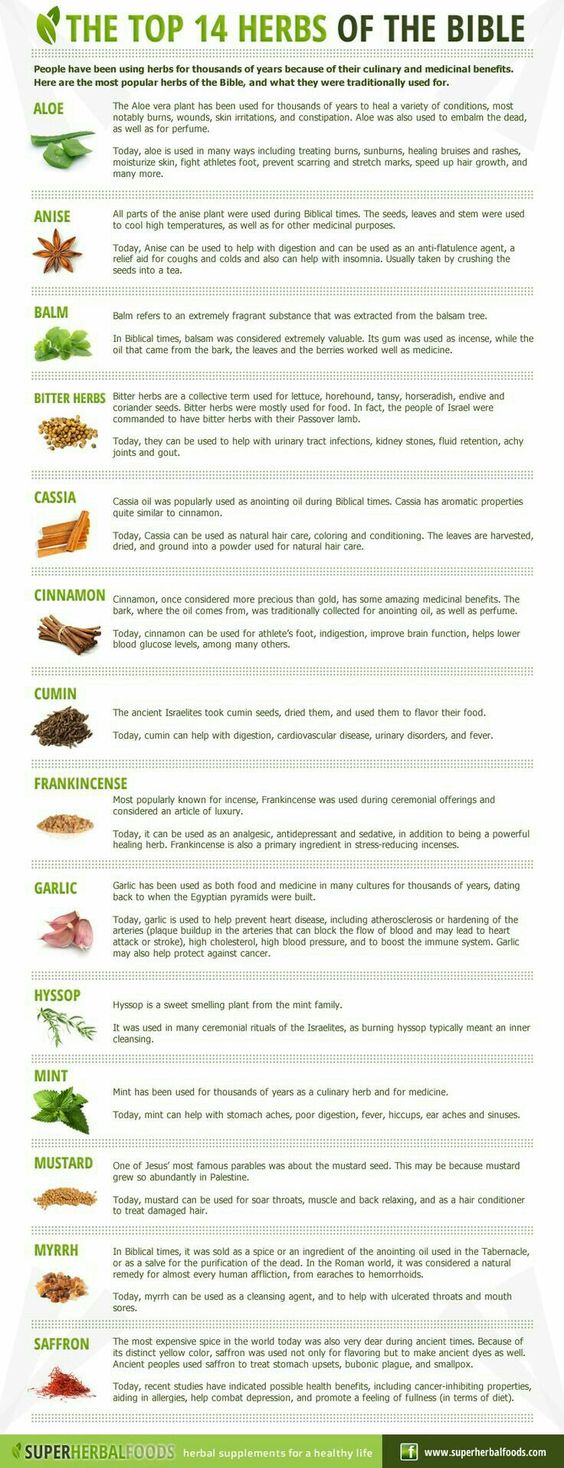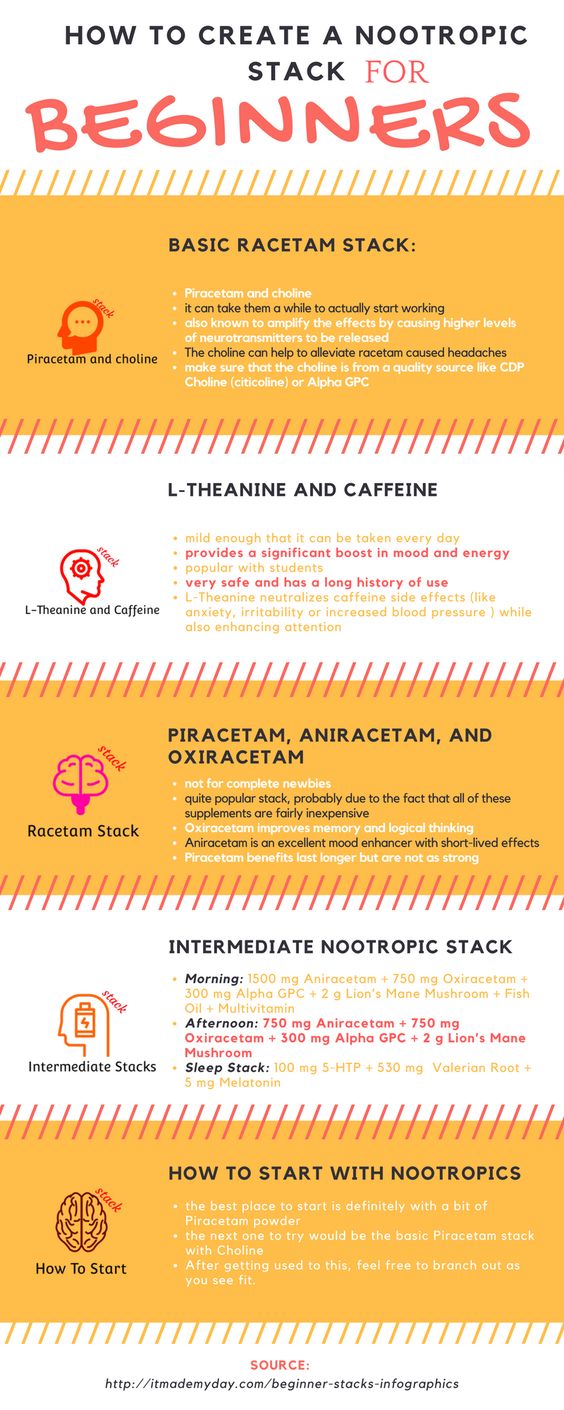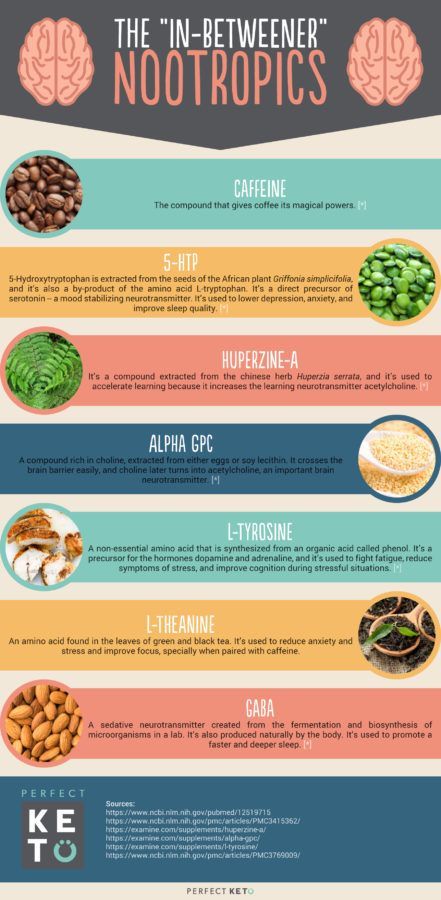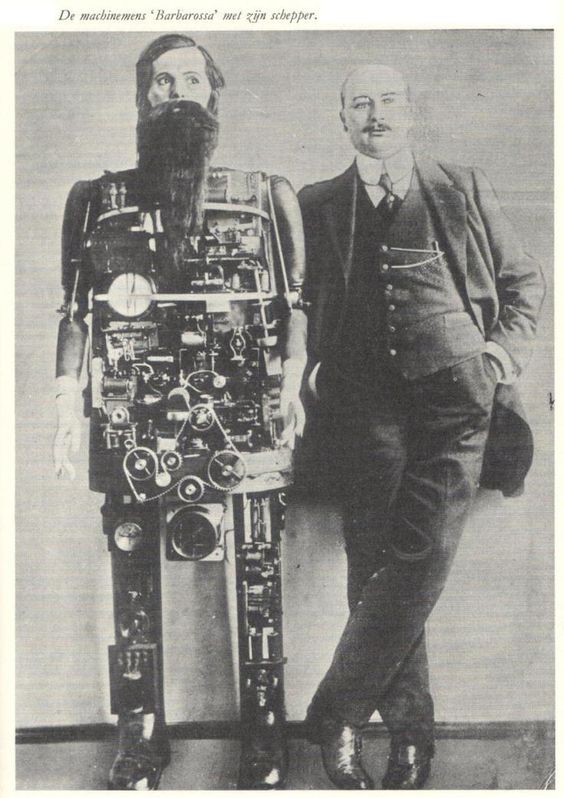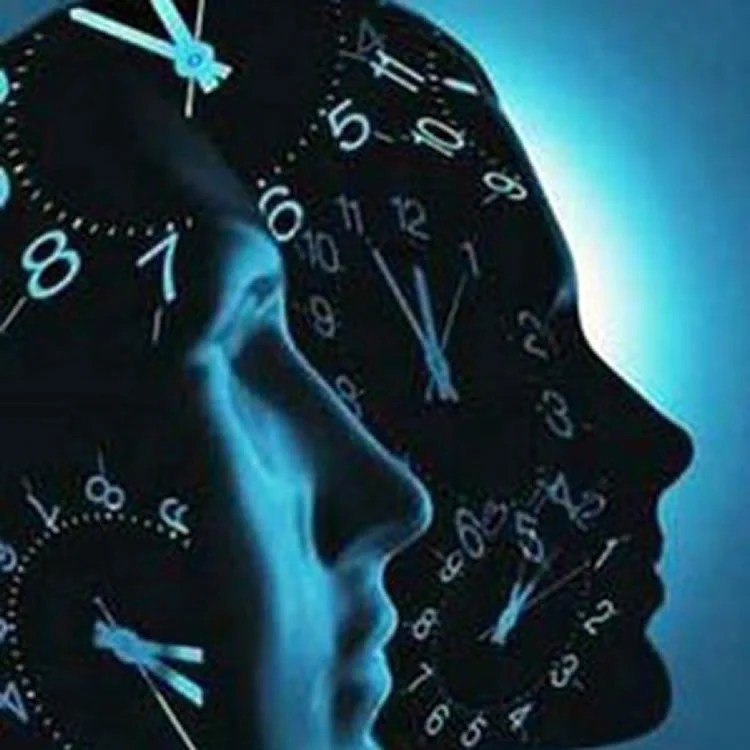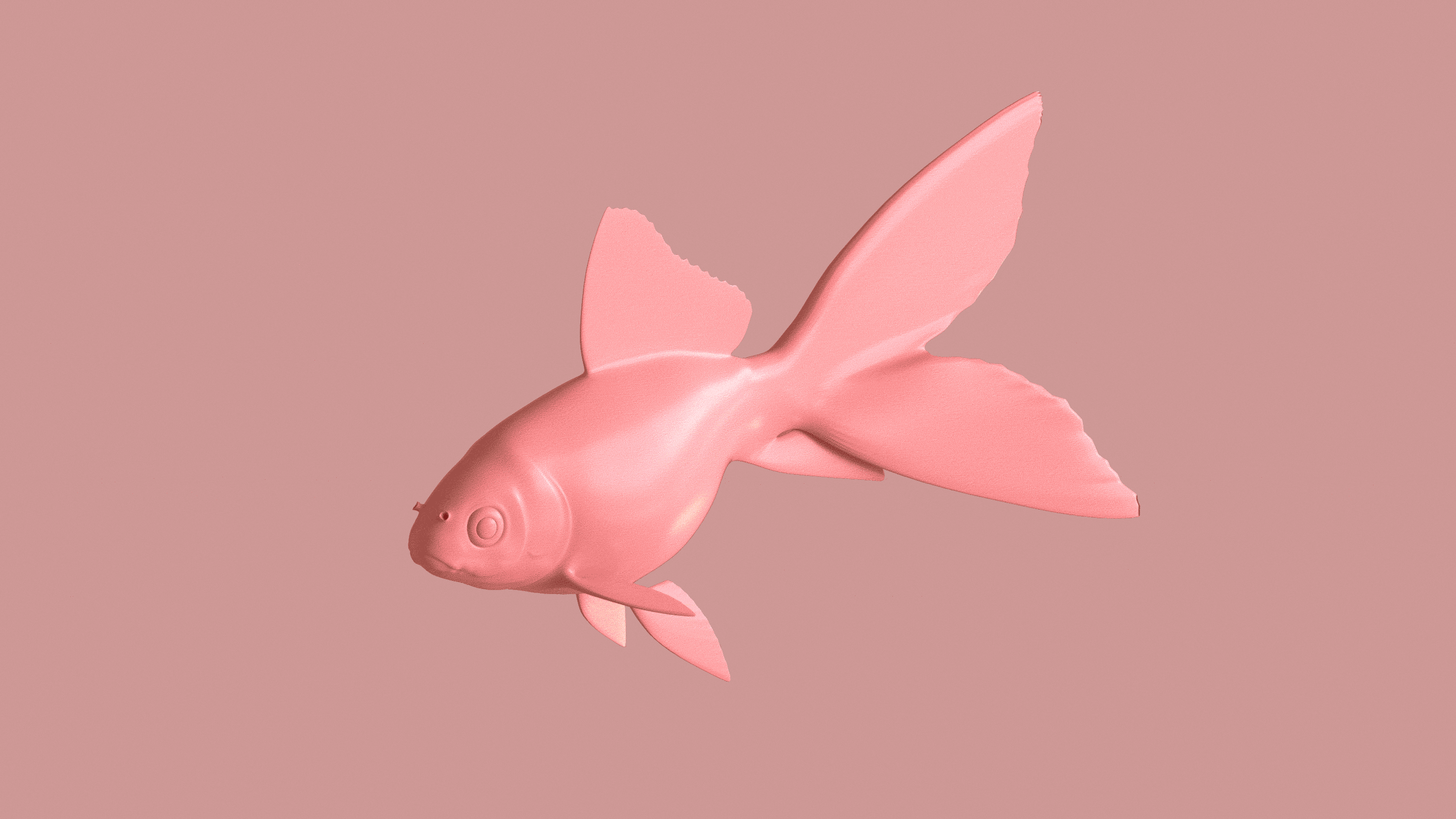As there has been some talk about such states lately...
(
@Ren @John K )
Flow
Psychology
Description
In positive psychology, flow, also known colloquially as being in the zone, is the mental state of operation in which a person performing an activity is fully immersed in a feeling of energized focus, full involvement, and enjoyment in the process of the activity.
_______________________________________________________________________________________________________________________
Flow State: What It Is and How to Achieve It
Imagine the moment before running a race.
Deep breaths behind the starting line keep your pounding heart at bay, and every second seems to be an eternity; yet, as soon as the starting gun sounds and your feet hit the track, every thought slides from your mind.
You are focused and sure, challenging yourself to achieve something you know is right within your reach.
Before you know it, time has flown past, the race is over, and though your chest is heaving, you barely notice that you are tired.
According to positive psychologist Mihály Csíkszentmihályi, what you experience in that moment is known as flow state, defined as an “optimal state of consciousness where we feel our best and perform our best.”
Csíkszentmihályi, who popularized the term in his 1990 book, the mental state of flow involves “being completely involved in an activity for its own sake. The ego falls away.
Time flies.
Every action, movement, and thought follows inevitably from the previous one, like playing jazz.
Your whole being is involved, and you’re using your skills to the utmost.”
The ten factors that can accompany this state of flow are:
1. Having clear goals about what you want to achieve
2. Concentration and focus
3. Participating in an intrinsically rewarding activity
4. Losing feelings of self-consciousness
5. Timelessness; losing track of time passing
6. Being able to immediately judge your own progress; instant feedback on your performance
7. Knowing that your skills align with the goals of the task
8. Feeling control over the situation and the outcome
9. Lack of awareness of physical needs
10. Complete focus on the activity itself
Now, not all of these factors need to be present in order to achieve flow state, but they are the emotions and responses most often associated with this mental state.
So what can you do to increase your chances of achieving flow?
In his book Finding Flow, Csíkszentmihályi explains that individuals can seek out activities that meet some of the factors of flow, like playing chess, playing a logic game or puzzle like Sudoku, participating in sports, engaging in a meaningful project at work or at school, drawing, or writing.
“Flow also happens when a person’s skills are fully involved in overcoming a challenge that is just about manageable, so it acts as a magnet for learning new skills and increasing challenges,” Csíkszentmihályi explains. “If challenges are too low, one gets back to flow by increasing them. If challenges are too great, one can return to the flow state by learning new skills.”
The importance of actively seeking out the flow state cannot be overstated.
Research done by Harvard professor Teresa Amabile shows that people who have experienced this state of mind report higher levels of productivity, creativity, and happiness for up to three days after experiencing flow state.
Pushing ourselves just outside our comfort zone, stretching to accomplish a set goal and working toward that goal with focus, determination, and little distraction expands our minds and teaches us to be creative and innovative-skills that increase the quality of both the work you do and the life you live.
For thousands of years mankind has looked up to the stars and formed intricate patterns, figures of hunters and heroes, out of the meaningless scatter of starshine; for we humans seek meaning wherever we can find it.
Living a life of meaning and of depth requires us to step outside of our comfort zones, to challenge our own ideas and create innovative ways to optimize our time on this earth.
The mental state of flow catapults our minds out of the mindless humdrum of everyday life and closer to a meaningful existence.
https://www.huffingtonpost.com/alayna-kennedy/flow-state-what-it-is-and_b_9607084.html
_____________________________________________________________________________________________________________________
Mihaly Csikszentmihalyi: Flow, the secret to happiness
Mihaly Csikszentmihalyi asks, "What makes a life worth living?”
Noting that money cannot make us happy,
he looks to those who find pleasure and lasting satisfaction in activities that bring about a state of "flow.”
_______________________________________________________________________________________________________________________
Flow State: How to cultivate a state of bliss and seamless productivity
Most of us have had a heightened and radical experience where time slows down,
specific details are enhanced, and self vanishes - what some top athletes describe as being "in the zone.”
In these amplified moments of consciousness, we make connections we had missed before,
hatch breakthroughs to problems that have been stumping us, and push the limits of what's possible for human performance.
I've felt it hundreds of times after several hours in front of an AVID while editing my films - but I never knew there was a name for it.
It's when I put enough time in that the gifts start coming.
It's a transcendent feeling, as if I have to race to physically manifest the ideas and connections that are flowing through me.
I become a conduit as puzzle pieces fly into place.
Ever been there?
Sometimes it just happens to us suddenly with a click, like magic; at other times we think we know how we got there...
but what if we could dial it in whenever we wanted to cultivate that state of bliss and seamless productivity?
Steven Kotler and Jamie Wheal, the co-founders of Flow Genome Project,
have been at the forefront of discovering the triggers in order to unlock and harness these "flow states.”
With wide-ranging examples from different disciplines such as the Curies' "Eureka moment," Einstein's mathematical genius,
Mozart's legendary compositions as well as Michael Jordan's wizardry on the basketball court,
Kotler and Wheal have examined how major athletic competitions, scientific discoveries,
and significant progress in the arts are associated with the unconscious creativity that surges out of flow states.
According to Wheal,
"Flow Genome Project is an interdisciplinary organization dedicated to mapping the deep science of ultimate human performance.”
Kotler adds, "Flow states are defined as optimal states of consciousness.
These are states where you feel your best and you perform your best.”
We now know that flow works not like an on-off switch but in a four-part cycle.
Understanding these cycles can help you to more often access flow.
___________________________________________________________________________________________________________________
____________________________________________________________________________________________________________________
I question some of the claims made by this article...but perhaps if one could be in a constant state of “flow” then maybe they would be true.
That would be quite a feat to stay in that “higher state of consciousness” - but then again, isn’t that the goal of those who seek knowledge for whatever the reason?
Anyhow...a slightly more spiritual version of flow.
Enjoy!
The Zone:
Use Breath, Posture and Passion to Get Into the Flow State
Send appreciation to the wonderful things in your life that have shown up and you get to love and nurture.
When I do this I notice solutions to situations naturally arise as well as new creative ideas and insights.
By
Stacey Nemour, Contributor
Psychologist Mihaly Csikszentmihalyi is famous for his theory on flow and as one of the pioneers of the scientific study of happiness.
In his book
Flow: The Psychology of Optimal Experience (1990), he concluded that happiness is not a fixed state but can be developed as we learn to achieve flow in our lives.
According to Csikszentmihalyi, "The best moments usually occur when a person's body or mind is stretched to its limits in a voluntary effort to accomplish something difficult and worthwhile."
When we focus our attention on a consciously chosen goal, our psychic energy literally "flows" in the direction of that goal, resulting in a reordering and harmonizing within consciousness.
This higher state of consciousness makes what would seem too difficult effortless and allows us to advance into new achievements in sports performance and all the arts.
The flow state is like a moving meditation.
Action and awareness merge when the athlete, artist or performer becomes totally absorbed in what they are doing.
They have all the skills necessary and are able to stretch their abilities to meet the challenge, while focusing attention on the task at hand.
Time seems to fly. It can also feel like there is no time.
An example of this can be seen in the martial arts or watching the Olympics.
The competitor seeks to lose all distractions of ego, fear and self-referring thoughts, immersing themselves completely in the activity.
This state allows the chi (energy) to flow through the individual and support the movement or task.
The flow state applies to dancers, athletes, writers, teaching, artistic creativity, and just living in a state of inspiration (in spirit)
There's no one way, whatever works for an individual and brings the desired results is correct for them.
Here are some suggestions that work like a charm for me and the athletes I coach:
1. Relax the eyes and use your breath.
While practicing your sport or art.
Then feel the body follow, this will clear and calm the mind and body.
2. Power vs. force.
Ask to use God's (or Jesus', Buddha's, the universe's, whatever feels right to you) energy and not your own.
Feel the power of the entire universe operating through you.
3. Posture.
It's extremely important to have good posture so that the energy can flow fully and freely.
In yoga it's referred to as your "back body." This will also create better balance, enhance sports performance and may help conserve energy.
When I am performing advanced martial art kicks, to help keep my balance and train at peak levels I keep my shoulders are back, chest lifted and feel my heart is open.
While the neck and low back are relaxed and using the abdominal muscles to support the back.
This helps prevent injuries and is the body language of confidence.
4. Meditation.
Program for success.
Get out of your own way and merge with your highest visions of yourself.
In Shaolin Kung Fu it is believed that the mind controls the body -- mind, body and spirit come together naturally as one reality.
Through meditation one may connect to their full creative power.
This gives one the ability to shift into an altered state at will.
Through consistent training one can program the mind to tune out distractions, whether internal (nervousness, fear of failure) or external (crowd noise, other competitors, weather conditions) without holding on to them or paying any attention to them.
5. Appreciation.
Get into the flow of whatever you are doing.
This can include cleaning, caring for your pets, plants or at work.
Send appreciation to the wonderful things in your life that have shown up and you get to love and nurture.
When I do this I notice solutions to situations naturally arise as well as new creative ideas and insights.
When in this state of grace or flow state, you are in your natural state of well-being.
One may notice how divine order and harmony carries into all areas of your life by:
* Working in complete harmony and cooperation with everyone you interact with.
*Drawing the highest and best from people.
*The right people, places and things show up.
* Financial abundance flows easily.
* Aches and pains are gone, the body and mind feel balanced.
_____________________________________________________________________________________________________________________
How To Achieve Your “Flow State”
Flow State also known as being in “the zone”, is the mental state of operation in which a person performing an activity is fully immersed in a feeling of energized focus, full involvement, and enjoyment in the process of the activity where the outside world disappears.
In essence, flow is characterized by complete absorption in what one does and
loses all sense of space and time.
When was the last time you were in the “flow state”?
Think back, what was the environment and conditions you were in?
Who was the team around you and people supporting you?
If you are not currently in the flow state, how can you re-create those conditions again?
Being in the zone where you feel the most happiest and most alive also sounds more exciting and fulfilling than living a
balanced life.
I find the flow state closely linked to the Japanese word Ikigai:
What is your reason for being?
Look within.
Ikigai (生き甲斐) is a Japanese concept meaning “
a reason for being” and often thought as “the reason to get up in the morning.”
Everyone, according to Japanese culture, has an ikigai.
Finding requires a deep and often lengthy search of self.
Such a search is important to the cultural belief to discover one’s ikigai brings satisfaction and to enjoy the meaning of life— the passion, purpose, a movement of working on something
bigger than yourself.
The word ikigai is usually used to indicate the source of value in one’s life or the things to make one’s life worthwhile.
Secondly, the word is used to refer to mental and spiritual circumstances under which individuals feel their lives are valuable and contributing to a higher purpose in life.
There is no one other than yourself to tell you how to achieve the state.
Only way is to look deep within to find your answer.

